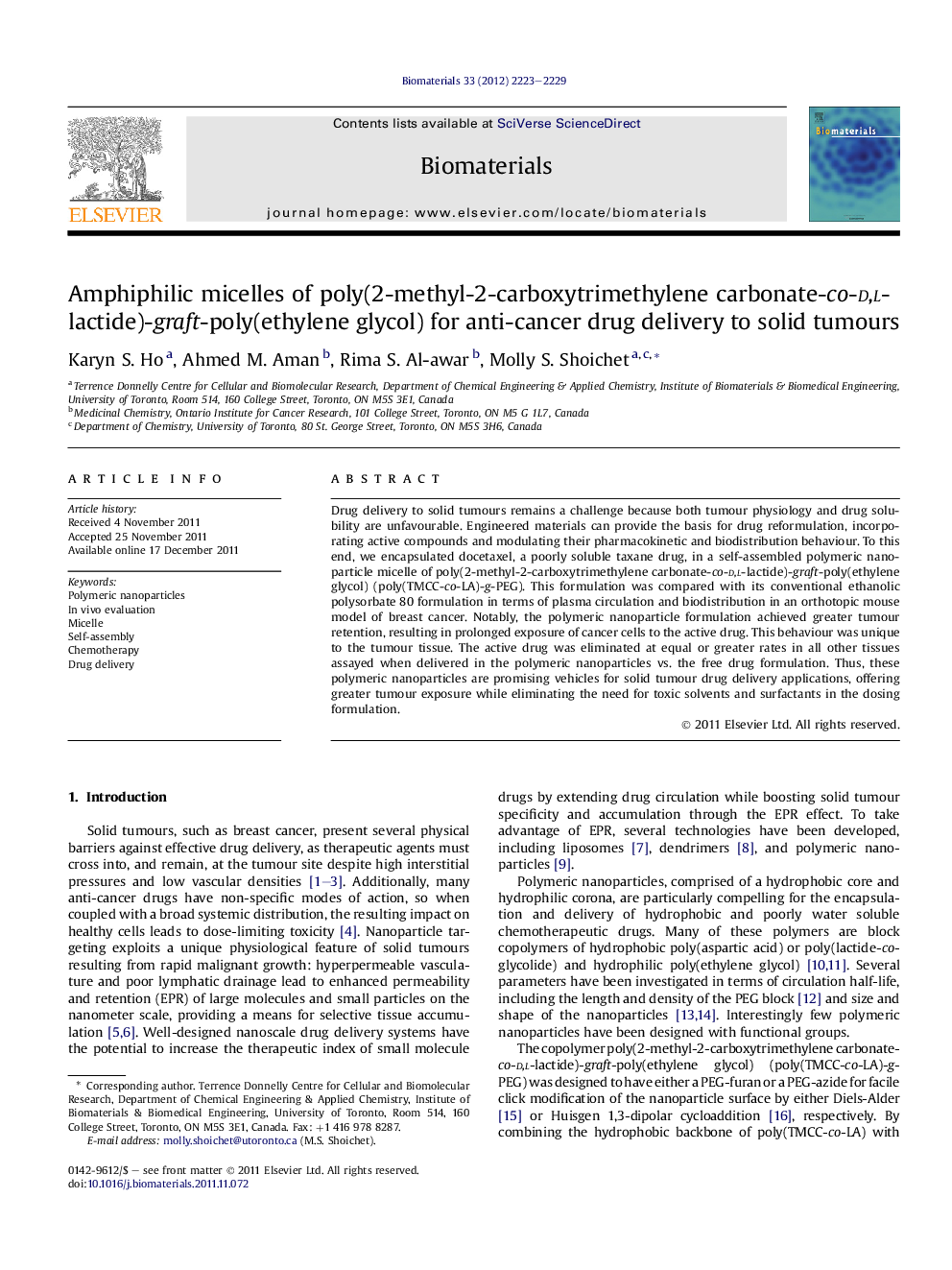| کد مقاله | کد نشریه | سال انتشار | مقاله انگلیسی | نسخه تمام متن |
|---|---|---|---|---|
| 7462 | 553 | 2012 | 7 صفحه PDF | دانلود رایگان |

Drug delivery to solid tumours remains a challenge because both tumour physiology and drug solubility are unfavourable. Engineered materials can provide the basis for drug reformulation, incorporating active compounds and modulating their pharmacokinetic and biodistribution behaviour. To this end, we encapsulated docetaxel, a poorly soluble taxane drug, in a self-assembled polymeric nanoparticle micelle of poly(2-methyl-2-carboxytrimethylene carbonate-co-d,l-lactide)-graft-poly(ethylene glycol) (poly(TMCC-co-LA)-g-PEG). This formulation was compared with its conventional ethanolic polysorbate 80 formulation in terms of plasma circulation and biodistribution in an orthotopic mouse model of breast cancer. Notably, the polymeric nanoparticle formulation achieved greater tumour retention, resulting in prolonged exposure of cancer cells to the active drug. This behaviour was unique to the tumour tissue. The active drug was eliminated at equal or greater rates in all other tissues assayed when delivered in the polymeric nanoparticles vs. the free drug formulation. Thus, these polymeric nanoparticles are promising vehicles for solid tumour drug delivery applications, offering greater tumour exposure while eliminating the need for toxic solvents and surfactants in the dosing formulation.
Journal: Biomaterials - Volume 33, Issue 7, March 2012, Pages 2223–2229